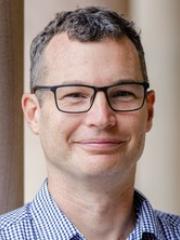Associate Professor Martin Sale

Researcher biography
Martin is an Associate Professor of Physiotherapy within the School of Health and Rehabilitation Science. He teaches into both the undergraduate and graduate entry masters programs. In addition, Martin coordinates the clinical placements across both programs.
Martin has a passion for supporting physiotherapy students throughout their journey, from preclinical studies to clinical placements. He has developed a series of strategies to help support the diverse cohort in thriving as student physiotherapists and gaining a sense of belonging to the profession. Martin has been involved in several curriculum reviews that have focussed on enhancing the student experience, and has initiated strategies that have proactively and reactively supported students (such as student mentoring, early observational placements and student-staff activities). He has a particular passion for supporting students from a culturally and linguistically diverse background.
In research, Martin leads a laboratory investigating neuroplasticity. The human nervous system is no longer thought of has hard-wired, and is in fact capable of rapid change throughout life. This plasticity is important for learning, memory and recovery from brain injury. Martin is interested in using emerging brain stimulation and imaging techniques to "artificially" induce plasticity in the human brain, to ultimately improve the treatment outcomes for various neurological conditions, particularly stroke. These stimulation techniques include transcranial magnetic stimulation (TMS) and transcranial direct current stimulation (tDCS). A key current focus of Martin's research is investigating the link between sleep and neuroplasticity, and whether the beneficial aspects of sleep (for promoting neuroplasticity) can be artificially induced with brain stimulation.
He completed a BSc in 1994 and received a First Class Honours in Physiology in 1995 from the University of Adelaide. He then completed a Bachelor of Physiotherapy Degree at the University of South Australia. Returning to research in 2005, he undertook a PhD at the University of Adelaide, which he completed in 2009. He was named "Young Scientist of the Year" in 2007 as a result of his PhD research. He was awarded a University of Queensland Postdoctoral Fellowship in 2010, and then a NHMRC Postdoctoral Research Fellowship in 2011 to investigate more intensely how the brains of stroke patients rewire. He has been awarded ~$4M in funding, principally from the NHMRC and US Department of Defence.
